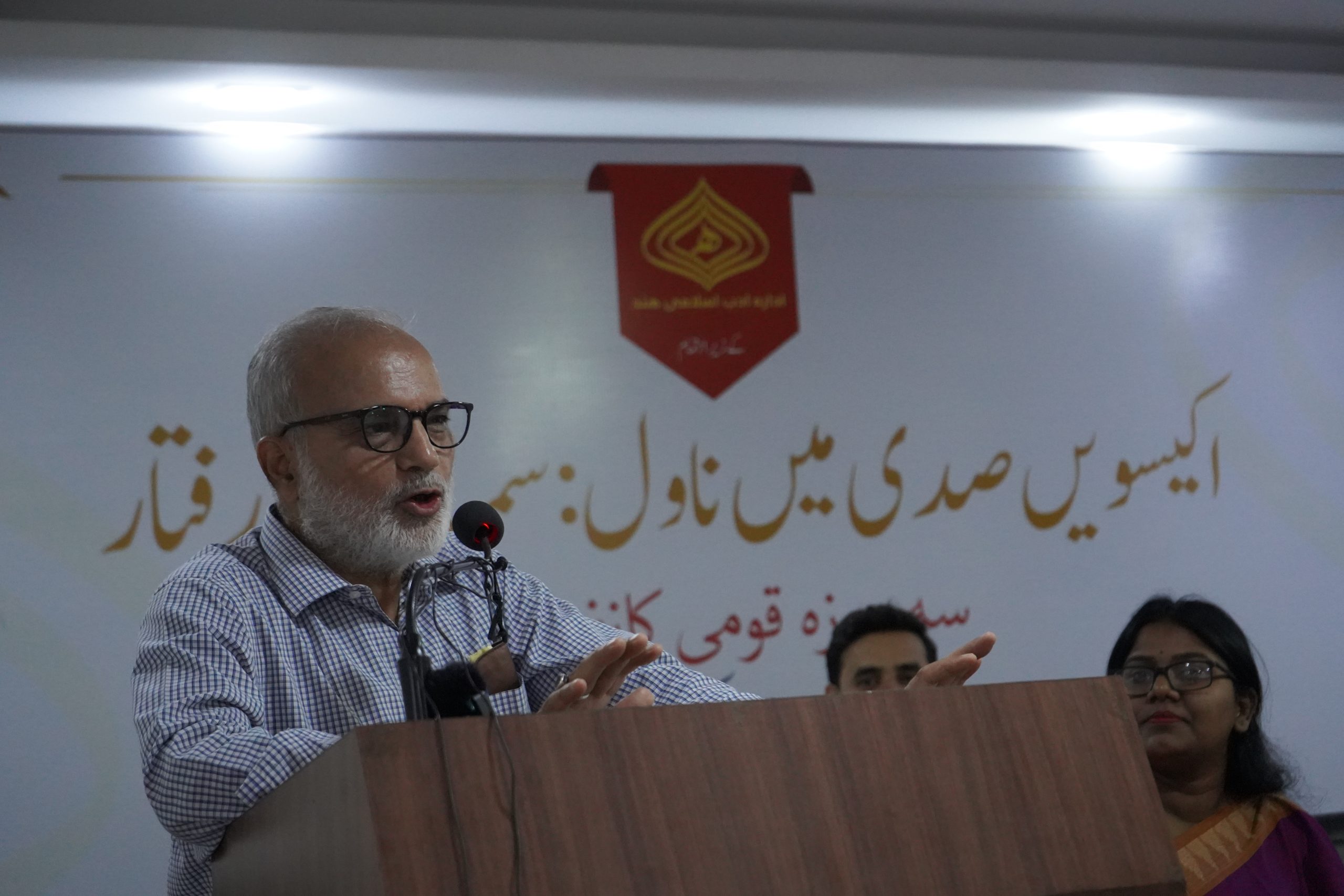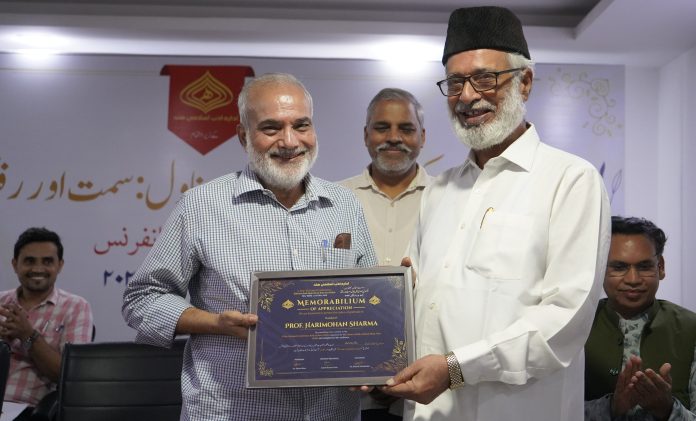New Delhi, October 10, 2023: The recently concluded national conference by Idara-e-Adab-e-Islami Hind in Delhi comprised five technical sessions, besides the Inaugural session, Valedictory session, a panel discussion and a session on Hindi Novels.
The notable feature of this conference was that, instead of any literary appreciation of selected novels written in the two decades of the 21st century, the papers were presented on topical issues encompassing all novels published during the period. Topics included values, minorities, feminism and cultural discourses. All these topics were further divided meticulously and a wide spectrum of subjects was addressed.
Another characteristic feature of the conference was the participation of scholars of the Hindi language in the inaugural session and panel discussion besides a full session on contemporary trends in Hindi Novel writings.
The special session on Hindi Novels was presided over by Professor Hari Mohan Sharma of Delhi University and was compered by Dr Arundhati. Dr Meraj Ali presented a paper on minority issues covered in Hindi Novels written in the new century.
Dr Priyanka Sonkar from Banaras Hindu University described the contributions of women novelists and the problems they are discussing. She referred to the opinion of Ambedkar that a pen is a powerful source of power. She made the point that women now, at least in the Hindi literary circle, have the pen in their hands and they know how to make use of this asset.
Dr Prem Tiwari deliberated upon the history of the Hindi literature. Hindi Novel writing in the initial days raised the concerns of individuals. He cited the case of Gaudan written by Prem Chandra; it devolved round the yearning of its central character to own a cow, which he could not possess till his death. This format of portraying the societal issues through the lens of individuals was later replaced by novelists who addressed social issues directly. So, the problems faced by Adivasis, Dalits and other downtrodden became the central theme of novel writings.
In the 20th century the society is replaced by the systems, including political establishments, corporate hegemonies and control of resources by a group of powerful persons who, despite being in minority, have their vested interests served by political establishments. The changeover of approaches from individuals to society and finally to systems are reflections of changing realities.
 Professor Hari Mohan Sharma, in his presidential address, took surmise of all the issues raised and pondered over in the session and said that novelists are positive agents of change in a society. Their writings are reflections of things happening around with a longing to make the world a better place to live in. The writings on miseries faced by the Muslim minority, Dalits, Adivasis and Women are part of the mainstream literature. The society is a summation of all its constituents and a positive attitude about all taken together is needed.
Professor Hari Mohan Sharma, in his presidential address, took surmise of all the issues raised and pondered over in the session and said that novelists are positive agents of change in a society. Their writings are reflections of things happening around with a longing to make the world a better place to live in. The writings on miseries faced by the Muslim minority, Dalits, Adivasis and Women are part of the mainstream literature. The society is a summation of all its constituents and a positive attitude about all taken together is needed.




